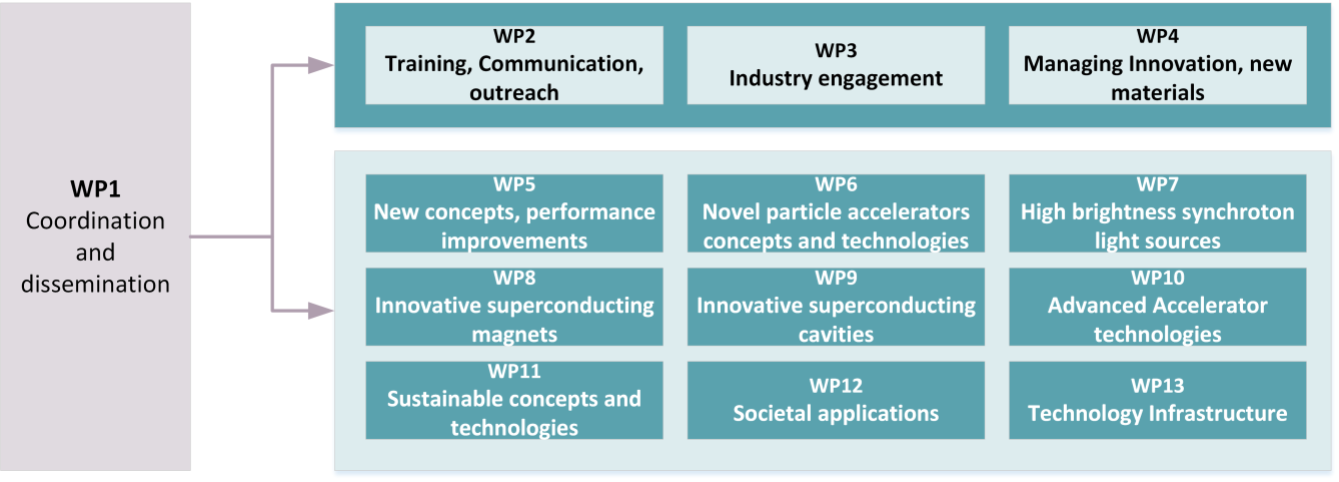PROGRAMME: Horizon 2020 (Research Innovation Action)
DURATION: May 2021 – April 2025
TOTAL BUDGET: 18.7 M€
TOTAL EC CONTRIBUTION: 10 M€
CONSORTIUM: 48 participants from 14 countries
PROJECT COORDINATOR: Maurizio Vretenar (CERN)
About the project
Particle accelerators deliver huge amounts of energy into tiny volumes of matter at subatomic scale, allowing particle physicists to penetrate into the heart of matter. The byproducts of these activities have a wealth of applications from fundamental science to applied science, medicine and industry. Differing in specifications, dimensions, and cost, particle accelerators share the same basic principles and technology and the same ambition: to unveil the secrets of matter for the benefit of humankind.
Despite their wide range of applications and high level of maturity and success, particle accelerators face a potentially challenging transition into the future. Innovation is needed to identify and develop new sustainable accelerator technologies capable of reaching the performance required by particle physicists at an acceptable impact on society; and to favor the transfer of key technologies, developed over the last decades, to particle accelerators used for applied science (photon and neutron sources) and for societal applications (medicine, industry, environment).
I.FAST aims to allow Europe to maintain leadership in fundamental particle physics and other fields of science based on particle accelerators, providing European industry with a portfolio of advanced accelerator technologies, thus contributing to the construction and upgrade of the next generation of accelerator-based Research Infrastructures, the creation of jobs, and ultimately long-term growth.
Key thematic areas
Nine key thematic areas were selected for being addressed in the project, corresponding to technologies related to the I.FAST strategic goals.
- Strategies and milestones for accelerator research and technologies
- Novel particle accelerators concepts and technologies
- High brightness accelerators for light sources
- Innovative superconducting magnets
- Innovative superconducting thin film coated cavities
- Advanced accelerator technologies and materials
- Sustainable concepts and technologies
- Societal applications
- Technology Infrastructure
The structure of the project

What are the I.FAST objectives?
- Boost innovation in and from the particle accelerator-based Research Infrastructures (RI) by developing innovative technologies common to different particle accelerator facilities; and by defining strategic roadmaps for future technological developments.
- Support technologies to ensure the long-term sustainability of particle accelerator-based research in terms of affordability, power consumption and environmental impact; and technologies that facilitate the operation and exploitation of particle accelerator-based systems.
- Support the ongoing transfer of particle accelerator technology into applied science and societal applications, contributing to the development of technologies for accelerator-based photon and neutron sources, and/or to address global challenges, in particular in medicine and environment.
- Create and maintain an Open Innovation ecosystem around the particle accelerator-based Research Infrastructures by involving industry; growing the community; promoting training; and facilitating access, by industry, to the Technological Facilities of Research Organisations and RI operators.
Who are the organisations behind I.FAST?
I.FAST brings together a wider and more diversified Consortium, involving 17 industrial partners, with the goal of establishing a broad Open Innovation ecosystem around accelerator-based Research Infrastructures, and provide accelerator science with the tools to face its next challenges.
The I.FAST consortium includes 8 operators of Research Infrastructures, 12 research organisations, 12 universities, and 17 companies, including 12 SMEs. Companies are involved in the co-creation of prototypes that will be tested and validated at relevant Technology Infrastructures.
